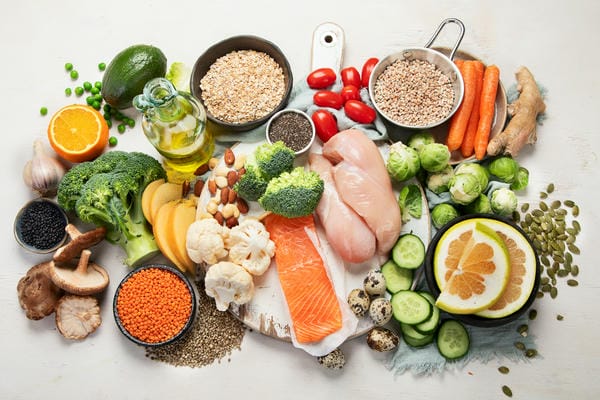As we age, our nutritional needs evolve, requiring careful attention to ensure optimal health and well-being. For older adults, maintaining a balanced and nutritious diet becomes increasingly crucial to support overall health, manage chronic conditions, and enhance quality of life. In this comprehensive senior nutrition guide, we’ll explore essential diet tips specifically tailored to the unique needs of older adults.
Importance of Senior Nutrition
Adequate nutrition plays a vital role in promoting healthy aging and preventing age-related diseases. Older adults often face challenges such as decreased appetite, changes in taste and smell, and difficulty chewing or swallowing, which can impact their ability to meet nutritional requirements. A well-planned and nutrient-rich diet can help address these challenges and support optimal health outcomes.
Key senior nutrition guide for Older Adults
- Protein: Essential for maintaining muscle mass, strength, and overall physical function. Include lean sources of protein such as poultry, fish, beans, lentils, and tofu in your meals.
- Calcium and Vitamin D: Crucial for bone health and preventing osteoporosis. Include dairy products, fortified plant-based milk, leafy greens, and sunlight exposure for adequate calcium and vitamin D intake.
- Fiber: Promotes digestive health, regulates blood sugar levels, and supports heart health. Incorporate whole grains, fruits, vegetables, legumes, and nuts into your diet for sufficient fiber intake.
- Healthy Fats: Opt for heart-healthy fats found in avocados, nuts, seeds, olive oil, and fatty fish like salmon and trout. These fats support brain function, reduce inflammation, and improve cholesterol levels.
- Vitamins and Minerals: Consume a variety of colorful fruits and vegetables to ensure a diverse range of vitamins and minerals in your diet. Focus on foods rich in vitamin C, vitamin A, potassium, and magnesium.
Meal Planning Tips for Older Adults
- Balanced Plate: Aim for a well-balanced plate consisting of lean protein, whole grains, colorful fruits and vegetables, healthy fats, and dairy or dairy alternatives.
- Portion Control: Pay attention to portion sizes to avoid overeating and maintain a healthy weight. Use smaller plates, bowls, and utensils to help control portions.
- Hydration: Stay adequately hydrated by drinking plenty of water throughout the day. Limit sugary beverages and alcohol, which can contribute to dehydration.
- Regular Meals: Aim for regular and consistent meal times to support digestion and regulate appetite. Include snacks if needed to prevent excessive hunger between meals.
- Mindful Eating: Practice mindful eating by savoring each bite, chewing slowly, and paying attention to hunger and fullness cues. Avoid distractions like television or electronic devices during meals.
Common Challenges and Solutions
- Chewing and Swallowing Difficulties: Choose softer foods, pureed or mashed options, and incorporate smoothies or soups for easier swallowing.
- Dental Health: Maintain good oral hygiene and address any dental issues promptly to ensure proper chewing and enjoyment of food.
- Appetite Changes: Experiment with different flavors, textures, and recipes to stimulate appetite. Consider smaller, frequent meals if appetite is reduced.
- Medication Interactions: Be aware of potential food and medication interactions. Consult with a healthcare professional or pharmacist if you have concerns about your medications and diet.
Lifestyle Factors for Healthy Aging
In addition to a senior nutrition guide, lifestyle factors play a significant role in healthy aging:
- Regular Physical Activity: Engage in regular exercise to improve mobility, strength, and cardiovascular health. Incorporate activities like walking, swimming, yoga, or strength training based on your abilities and preferences.
- Social Connections: Maintain social connections and stay engaged with family, friends, and community activities. Social interaction promotes mental well-being and reduces feelings of loneliness or isolation.
- Quality Sleep: Prioritize adequate and restful sleep to support overall health, cognitive function, and immune system function. Create a relaxing bedtime routine and address any sleep-related issues.
- Stress Management: Practice stress-reducing techniques such as deep breathing, meditation, mindfulness, or hobbies that bring joy and relaxation.
Conclusion
In conclusion, prioritizing senior nutrition is essential for promoting healthy aging, managing chronic conditions, and enhancing overall well-being. By following the essential diet tips outlined in this guide, older adults can maintain optimal health, vitality, and quality of life. Consult with a registered dietitian or healthcare professional for personalized nutrition advice tailored to your individual needs and health goals. Embrace a balanced and nutritious diet, stay physically active, nurture social connections, and prioritize self-care for a vibrant and fulfilling life as you age gracefully.













